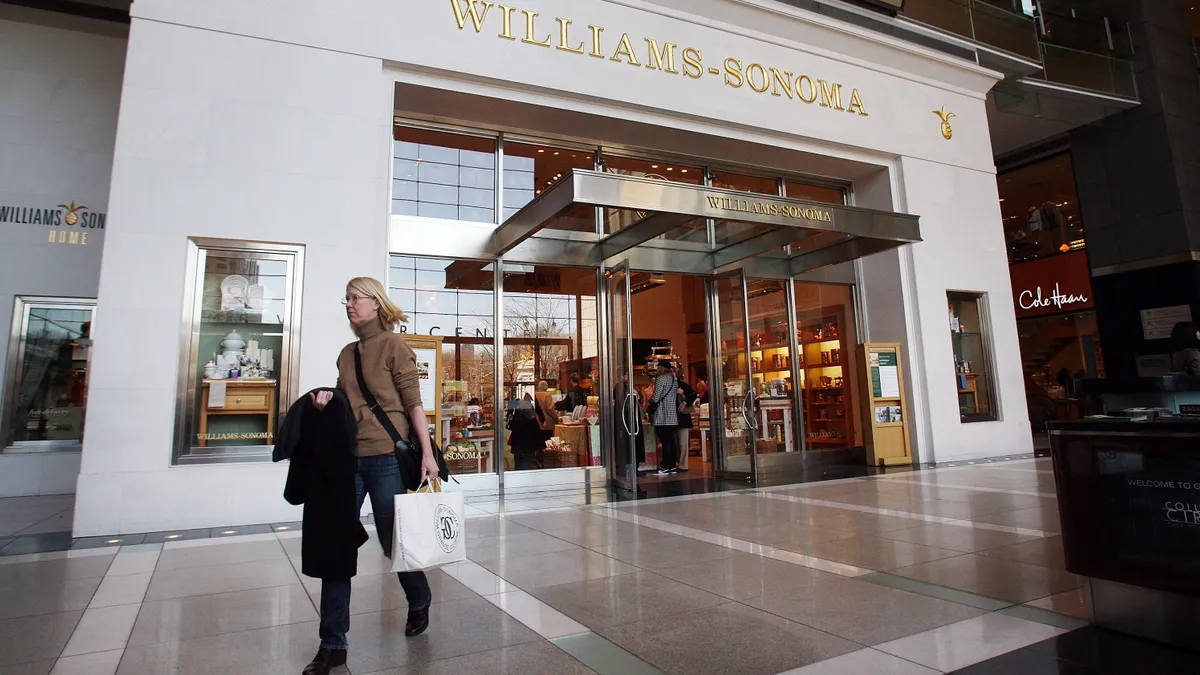Dive Brief:
- Higher customer shipping costs are cutting into Williams-Sonoma's selling margin, executive vice president and CFO Jeff Howie said on the home products retailer's Q1 earnings call last week.
- Cost of goods sold as a percentage of net revenues increased from 56.2% to 61.5% year over year in Q1, which ended April 30. The company, which also owns Pottery Barn, attributed this in part to expenses from shipping from out-of-market distribution centers and shipping multiple times for multi-unit orders.
- "We're working hard to rebalance our inventory composition and regional inventory location to improve our customer service," Howie said.
Dive Insight:
Williams-Sonoma has been on a long journey to reduce late shipments and improve customer service since the COVID-19 pandemic disrupted supply chains.
"Products were late — very late," President and CEO Laura Alber said on the call of pandemic-related challenges. "We had to repeatedly tell customers that they weren't getting things and that cost us a lot of money and a lot of credibility with our customers."
In order to serve customers in a timely fashion, the retailer has opted for longer-distance shipments and multiple deliveries for a single product over the past year.
"Incrementally, we are doing the right thing by our customer to accelerate getting the goods to them," Julie Whalen, Williams-Sonoma's former CFO, said in an August earnings call. "And so there'll be incremental cost for out-of-market shipments and for multiple shipments that we typically would have done in a single shipment."
Williams-Sonoma has improved in terms of on-time deliveries, a key component in customer satisfaction, Alber said last week. Rebalancing inventory will allow the company to reduce multiple and out-of-market shipments, further improving service levels while reducing costs, the CEO added.
Williams-Sonoma has also taken more control over its supply chain by insourcing furniture delivery hubs in certain areas and regionalizing its fulfillment capabilities. However, it is still vulnerable to external factors that could upend the customer delivery experience. It remains "heavily dependent" on certain third-party carriers to deliver merchandise to customers, according to its annual financial report.
The report pointed out contract negotiations between UPS and the Teamsters union as a particular risk to its ability to deliver products. The union has threatened to strike if a deal isn't reached by the July 31 expiration of the current contract.
















